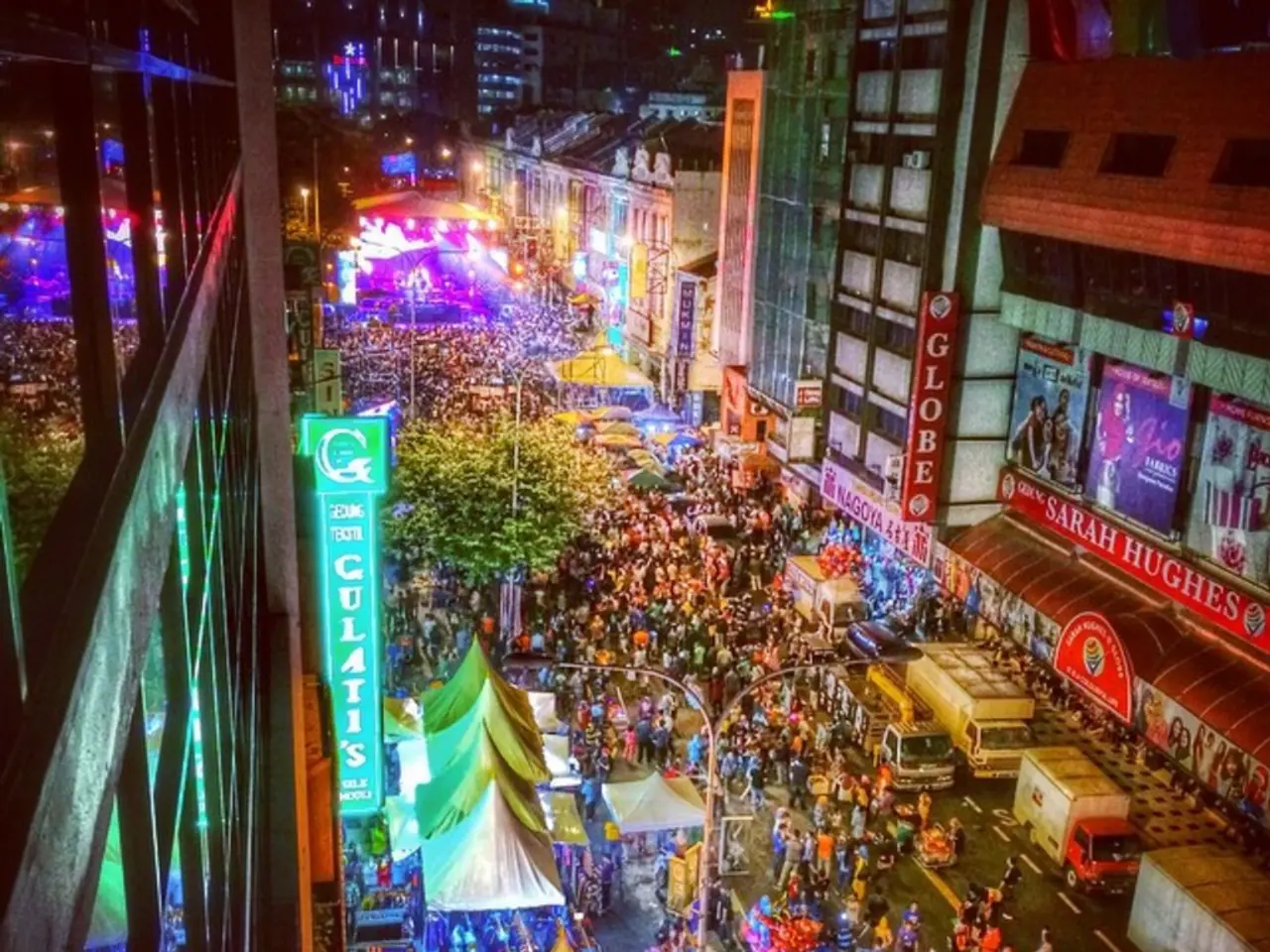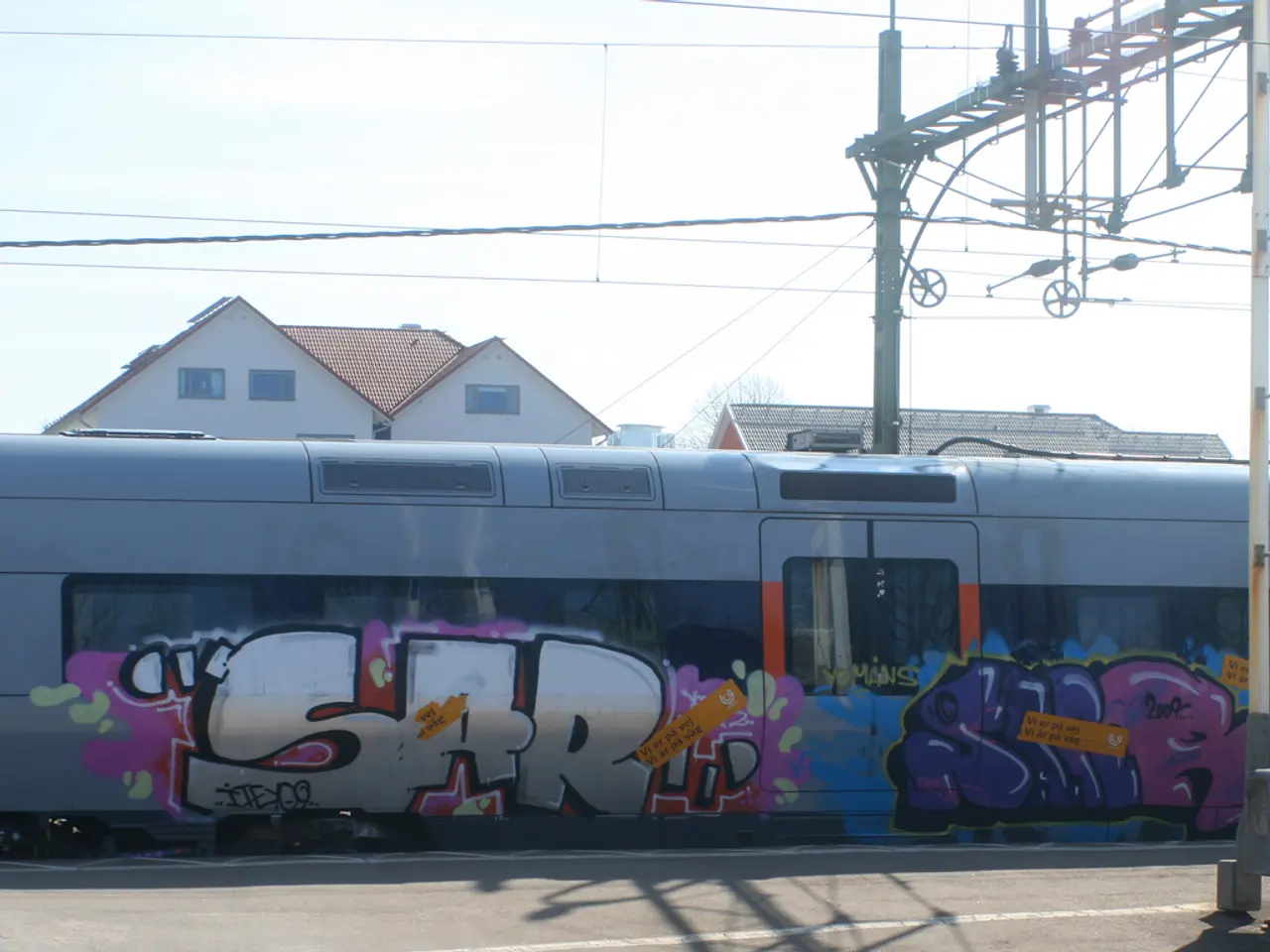Celebratory Gathering of Spancirfest Plagued with Narrow-Minded Perspective
In the heart of continental Croatia, two heavyweight festivals, Špancirfest in Varaždin and Terezijana in Bjelovar, have been making waves in recent years. These events, each with its unique charm and appeal, are facing challenges as the tourism landscape in Croatia evolves.
Špancirfest, a popular street festival that has been active since 1999, has become synonymous with Varaždin, transforming the city's historic center into a hub of music, performance, and cultural exchange. Over its 20-year history, it has become a defining event for the city, deeply embedded in local identity and drawing significant international attention.
However, the rise of continental tourism and the emergence of new festivals present clear challenges for established events like Špancirfest. Croatia's tourism industry is increasingly diversifying beyond the Adriatic coast, with cities like Osijek, Varaždin, and Bjelovar investing in cultural events to attract visitors. This trend means travelers have more options for cultural experiences inland, reducing the exclusivity that once drew visitors to Varaždin specifically for Špancirfest.
One such festival is Terezijana, established in 1996 in Bjelovar, a city relatively close to Varaždin. This family-friendly festival has been praised for being fantastic, offering something for everyone. Last year, it combined the Burger, Pizza, and Pancake Festivals for the first time in Croatia, making it a culinary as well as cultural destination.
The growth of Terezijana, which is expanding to a five-day duration this year and celebrating its 30th anniversary in 2026, coincides with the opening of a new motorway to Bjelovar and the anticipated thermal spa in the region. This infrastructure development is expected to further boost tourism in the area, potentially drawing visitors away from Špancirfest.
The competition between the two festivals has led to some controversy. A post comparing the programmes of Terezijana and Špancirfest was disingenuous, as it only highlighted 8 out of hundreds of events over 5 days. This was criticized as an attempt to undermine Terezijana, with some viewing it as classless.
In response, a public apology from Špancirfest and support for colleagues, rather than attempting to undermine them, is suggested as a way for Špancirfest to rise above mediocrity. For both festivals to thrive, they will need to continue innovating, promoting their distinctive characters, and reinforcing their deep connections to their respective cities' histories and communities in the face of an increasingly crowded festival landscape.
As a Dalmatian island boy who prefers spending summer months in continental Croatia and exploring the offer away from the Adriatic, I have enjoyed two new festivals last year—Lukovo in Novska and Stara Jela z Dugog Sela. These events, like Špancirfest and Terezijana, showcase the rich cultural heritage and vibrant spirit of continental Croatia, making them must-visit destinations for any traveler seeking an authentic Croatian experience.
In conclusion, the rivalry between Špancirfest and Terezijana is a testament to the vibrant festival scene in Croatia. As these events evolve and adapt to the changing tourism landscape, they will continue to play a significant role in promoting Croatian culture and attracting visitors from around the world.
[1] https://www.spancirfest.com/en/ [4] https://www.croatiaweek.com/varazdin/spancirfest-varazdin/ [5] https://www.total-croatia-news.com/culture/9611-slavonia-and-osijek-boost-cultural-tourism-with-new-festivals-and-events
Social-media platforms are buzzing with discussions about the entertainment offerings in continental Croatia, with Špancirfest and Terezijana being key topics. These festivals, both deeply rooted in pop-culture and local traditions, present unique experiences that attract both locals and international visitors.






